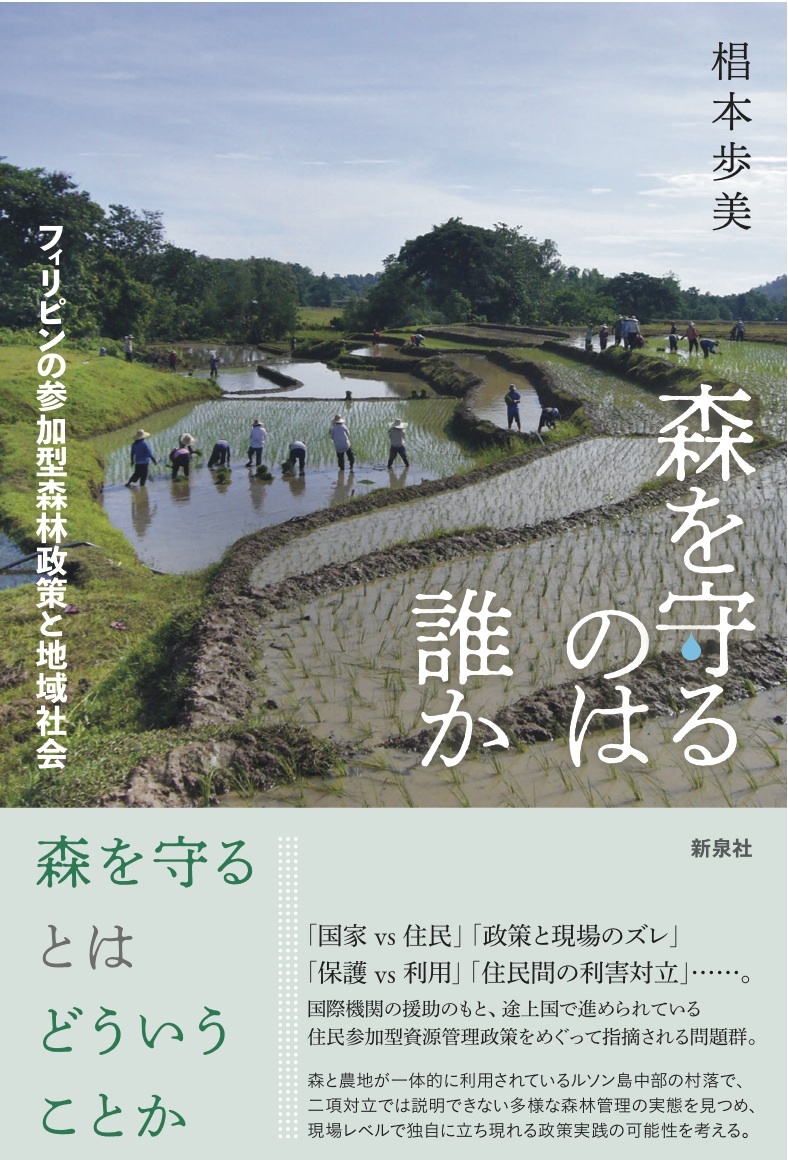
Title
Mori wo mamoru nowa dareka (Who Manages the Forests? - Local Communities and Community-Based Forest Management in the Philippines)
Size
344 pages, 127x188mm, hardcover
Language
Japanese
Released
July 20, 2018
ISBN
978-4-7877-1811-2
Published by
SHINSENSHA
Book Info
See Book Availability at Library
Japanese Page
What does it mean to manage and protect the forests? Forest conservation has been a global environmental concern for a long time. In developing countries, in particular, forest management has been a community-based endeavor with supports from international institutions. Still, though community-based forest management has been perceived as a solution to global forest conservation that is productive to a certain extent, it has been pointed out that this approach also has numerous problems, such as gaps between government policies and local realities leading to conflicts of “government vs. local communities,” and conflicts of “conservation vs. utilization” leading to clashes among local communities and residents with vested interests. This book explores the effects of government policies at the local level and why community-based forest management practices are giving rise to new issues.
This book focuses on the Philippines where community-based forest management was launched in the 1970s and which is one of the countries in Southeast Asia where the systemization of the policy is most advanced. While the implementation of community-based forest management in the Philippines has helped to revive forestlands and improve the life of local communities, there is criticism that the handing over of forest-management right from the government to local communities has blurred the issue of national control over local communities and forests and hidden the confrontational structure of relations between the national government and local communities. The author emphasizes the fact that within the midst of this situation, local residents and administrative staff are managing local forests according to their own logic and rules that deviate from official government policies. While there has been much debate on how to implement community-based forest management, the fact that forest management at the community level often deviates from the intent of official policies has been seen as a problem. And yet, little attention has been paid to how these local practices and rules were created. Based on detailed fieldwork of one particular Philippine village, this book elucidates the mechanisms leading to local forest-management systems and provides a conceptual framework in which to analyze these mechanisms so as to offer a new perspective for understanding the impact of these policies on the local community.
In the central Luzon village where the author conducted her fieldwork, both forest and farmland are utilized, conventional conceptual dichotomies of “national vs. local communities” and “conservation vs. utilization” are insufficient for understanding the complexity of the village situation. This book examines the reality of diverse forest-management conditions and considers the possibilities for implementing local management practices unique to specific situations. It is a highly recommended reading for those interested in international development, environmental issues, and local communities.
(Written by: SUGIMOTO Ayumi / January 26, 2021)
Related Info
The 3rd (2020) Japanese Association for Environmental Sociology Encouragement Award
http://www.jaes.jp/mailmag_a/2020/6113



